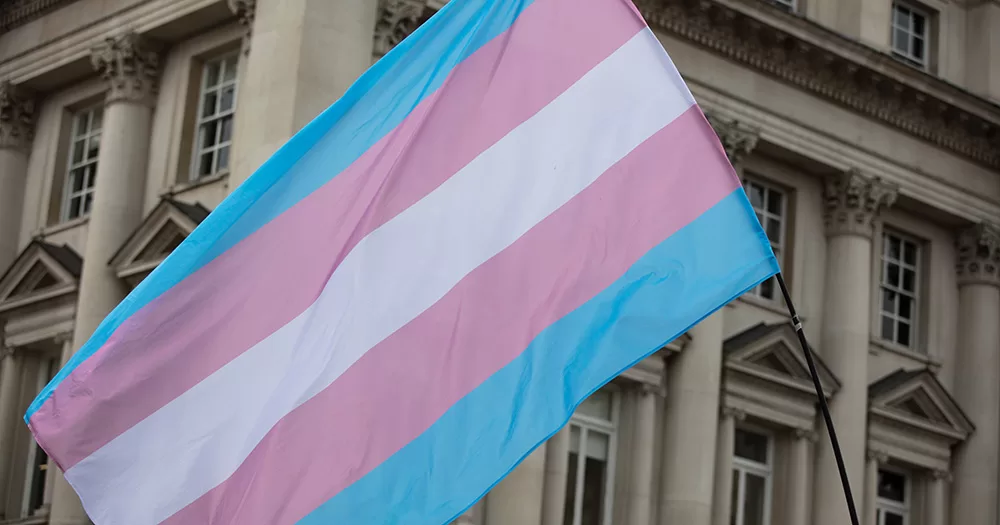Legislators in Germany have voted in favour of the Self-Determination Act, making it easier for transgender, intersex and non-binary people to change their name and gender on official documents. After controversial debates, the law was passed with 374 delegates voting in favour, against 251 no-votes and 11 abstentions.
The new legislation will allow people to change their name and gender without going through a lengthy and expensive process, as the current so-called ‘Transsexual Law’ that dates back four decades mandates.
The Self-Determination Act will allow people aged 14 years and older to change their name and gender with approval from their parents or guardians. In the case of younger children, parents or guardians will have to make registry office applications on their behalf.
The law focuses solely on individuals’ legal identities and does not involve revising Germany’s laws on gender-transition surgeries. The new legislation also maintains the right of operators of businesses like gyms and pools, for example, to continue to decide who has access to which changing rooms, saunas and the like.
Massive congratulations to all queer people in Germany as the Self Determination Law has passed the Bundestag.
Germany has joined a growing group of countries to afford Trans people the right to live their lives truthfully and with dignity.
Well done @Die_Gruenen https://t.co/0PzJWwbBAK
— Thomas Atkin-Withers ??️??? #RejoinEU (@Thomas_Atkin_1) April 12, 2024
Ahead of the vote, Germany’s first-ever ‘Queer Commissioner’ Sven Lehmann told Redaktionsnetzwerk Deutschland that simplifying legal gender change will “make the lives of transgender, intersex and non-binary people noticeably easier and better”.
Under the Transsexual Law which was in place in Germany until now, people who wished to change their gender were “still treated by the state as if they were ill,” Lehmann said. He added that this state-imposed paternalism and heteronomy must be ended.
Up to now, two psychiatric reports and a court order were required to legally change an individual’s gender. Those affected often had to put up with very intimate questions that have been widely criticised as invasive and discriminatory, with many trans people describing the procedure as humiliating, lengthy and costly.
“We finally want to make it easier,” Slawik, one of two trans women elected as lawmakers in 2021, told ARD TV before the vote took place.
“Many other countries have gone this way, and Germany is simply following suit in significantly simplifying this registration.”
In the parliament’s lower house, the Bundestag, Slawik said that if the new law had been in place when she transitioned, it would have saved her over a year of dealing with courts, seeking expert assessment and spending nearly €2,000.
We are delighted to welcome the passage of the German Self-Determination Act, which replaces a 40-year-old law and brings Germany in line with human rights standards for legal gender recognition. Congratulations to the activists involved in the process! https://t.co/xATxf6AwA1 pic.twitter.com/TJeFldMHhQ
— ILGA-Europe (@ILGAEurope) April 12, 2024
The Self-Determination Law is one of several social reforms that Germany’s Chancellor Olaf Scholz’s liberal-leaning coalition government pledged when it took office in late 2021. It will come into full effect at the beginning of November this year, with Germany officially joining 15 other states around the world that allow for self-determination, including Ireland, Denmark and Uruguay.
© 2024 GCN (Gay Community News). All rights reserved.
Support GCN
GCN is a free, vital resource for Ireland’s LGBTQ+ community since 1988.
GCN is a trading name of National LGBT Federation CLG, a registered charity - Charity Number: 20034580.
GCN relies on the generous support of the community and allies to sustain the crucial work that we do. Producing GCN is costly, and, in an industry which has been hugely impacted by rising costs, we need your support to help sustain and grow this vital resource.
Supporting GCN for as little as €1.99 per month will help us continue our work as Ireland’s free, independent LGBTQ+ media.

comments. Please sign in to comment.